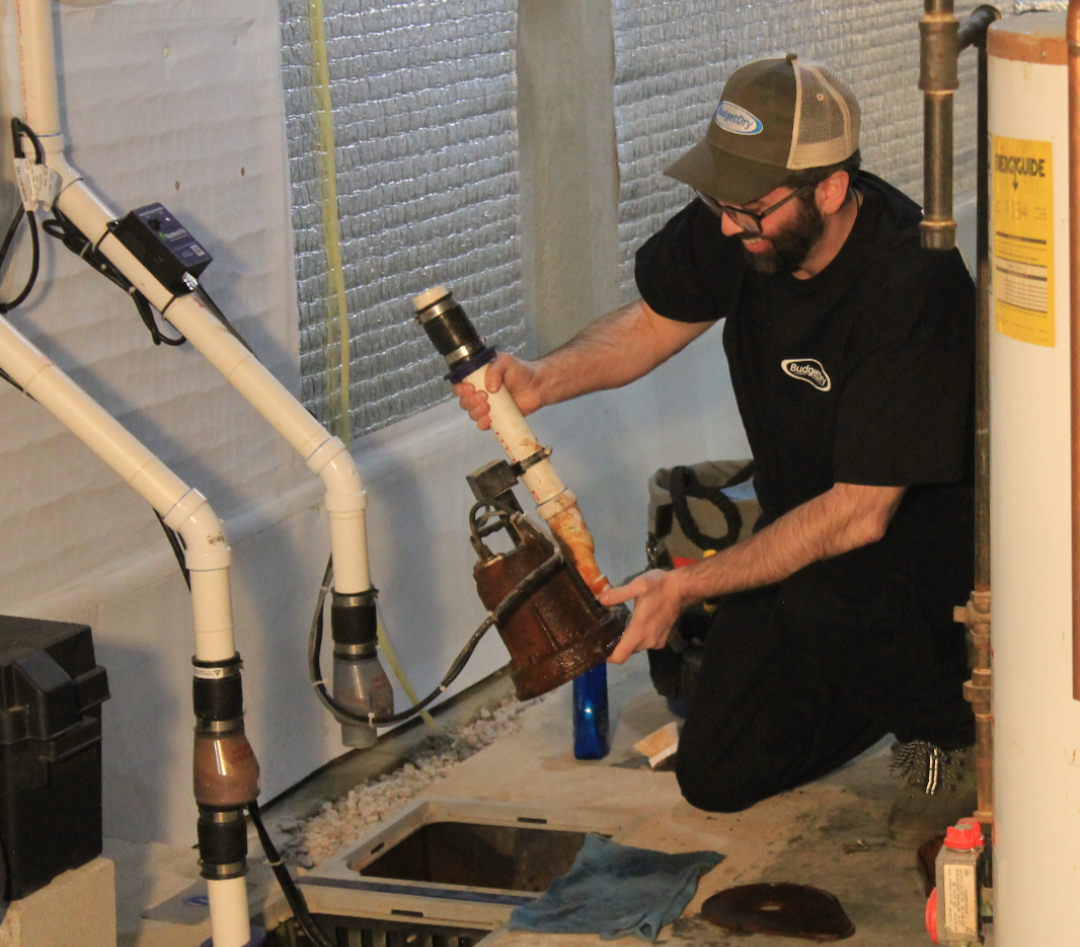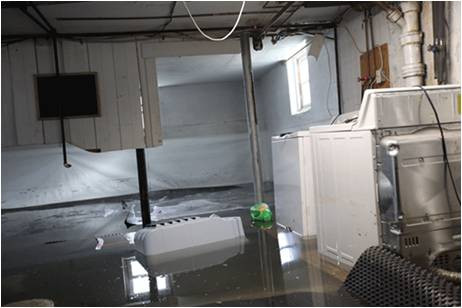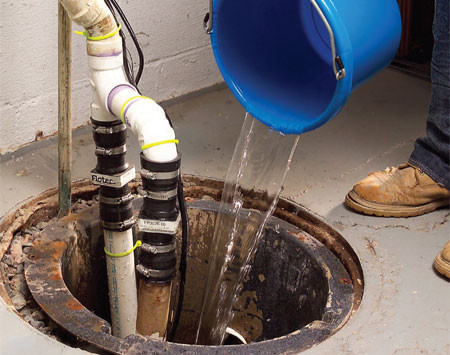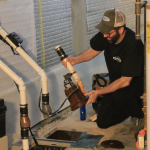Imagine you’ve just made the decision to finish your basement, creating that much-needed extra space. But before you get started, have you considered the possible risks of skipping the waterproofing process? Without it, you could face serious issues like structural damage and mold growth, not to mention the potential health hazards. And what about the impact on the value of your property? It’s not just about aesthetics and functionality, but also about safety and investment protection. So, is it really worth taking the risk? Let’s explore this further together.
Key Takeaways
- Finishing a basement without waterproofing can lead to structural damage due to moisture intrusion.
- Mold growth in non-waterproofed basements can cause health issues such as respiratory problems and allergies.
- Neglecting waterproofing can result in costly repair and maintenance expenses, impacting your financial situation.
- Unwaterproofed basements can lower property value and deter potential buyers, affecting resale prospects.
- Without waterproofing, your basement may be susceptible to flooding, leading to extensive damage and negative market perception.
Understanding Basement Waterproofing
Diving into the world of basement waterproofing, it’s essential to grasp what it entails.
It’s all about protecting your basement from water damage. To do this, two main components are typically used: drainage systems and moisture barriers.
Let’s start with drainage systems. You’ve probably noticed that water tends to accumulate in your basement, especially during heavy rainfall. That’s where drainage systems come in. They’re designed to collect that water and guide it away from your basement, preventing it from causing any damage.
There are several types of drainage systems you can use, including interior, exterior, and baseboard drains. Each has its own strengths and weaknesses, so you’ll need to consider your specific situation when choosing one.
Now, let’s talk about moisture barriers. These are materials used to prevent moisture from seeping into your basement. They’re typically applied to the walls and floor of your basement.
The main goal of a moisture barrier is to prevent the growth of mold and mildew, which thrive in damp environments.
Risks of Not Waterproofing
You might think skipping basement waterproofing is a good way to save money, but it’s crucial to understand the potential risks involved.
Ignoring this step can lead to structural damage, pose serious health hazards, and even have substantial financial implications down the line.
Let’s unpack these risks and why they’re worth considering.
Potential Structural Damage
Over time, neglecting to waterproof your basement can lead to significant structural damage.
It’s a risk you don’t want to take. The foundation stability of your home is at stake. Moisture intrusion is a silent enemy, undermining the solidity of your home, and it can cost you dearly.
Water seeping into your basement can gradually weaken the foundational structure.
It’s not just the damp walls or the puddles on the floor you should be worried about. The real danger lies in the potential weakening of the very base that holds your home up.
Here are a few consequences of not waterproofing your basement:
- Gradual erosion of the foundation: Continuous exposure to moisture can cause the foundation to erode over time.
- Cracking and buckling: As water seeps into the foundation, it can freeze and expand, causing cracks and buckling.
- Structural instability: Over time, these issues can lead to serious structural instability, putting the entire building at risk.
Health Hazards Involved
Your family’s health is another major factor to consider when questioning the safety of an unfinished, non-waterproofed basement. The lack of waterproofing can lead to mold growth, which can become a serious health risk.
Mold, a common inhabitant in damp environments, thrives in non-waterproofed basements. It’s not just an eyesore, it’s harmful too. Mold spores spread through the air, degrading the air quality in your home. You mightn’t notice it at first, but over time, inhaling these spores can cause respiratory problems, allergies, and even asthma, especially in children and older adults.
Additionally, mold isn’t the only issue. Dampness promotes the growth of bacteria and dust mites, which can lead to other health problems. These microbes can cause skin irritations, eye problems, and flared-up allergies.
Think about it: you wouldn’t let your family live in an unhealthy environment, would you? So why allow these hazards in your basement? It’s not just about the structure of your home, but the health of your family too.
Waterproofing your basement isn’t just an option, it’s a necessity.
Financial Implications
Beyond the health risks, an unwaterproofed basement can also hit your wallet hard.
It’s essential to conduct a cost analysis before deciding to skip this crucial step. The initial savings may seem appealing, but you’d be ignoring the financial considerations of potential future damage.
Consider the following:
- Water damage can lead to costly repairs. Moisture seeping into your basement can ruin walls, flooring, and any furnishings. The cost to replace these, not to mention the inconvenience, can far exceed the cost of waterproofing upfront.
- An unwaterproofed basement can negatively impact your home’s resale value. Prospective buyers are likely to be put off by the potential for water damage and may demand a lower price.
- Over time, moisture can damage your home’s structural integrity. This can lead to massive repair costs and even make your home unsafe to live in.
You’re not just risking a bit of water in your basement – you’re risking a potential financial nightmare down the line.
Common Basement Moisture Issues
Dealing with basement moisture can feel like you’re in over your head. However, understanding common moisture issues and their solutions can make the task less daunting.
Humidity control is a crucial first step. A dehumidifier can help keep dampness in check, but you’ll need more than that for significant moisture issues. That’s where drainage systems and sump pumps come in. They redirect water away from your basement, preventing accumulation that can lead to dampness and mold.
Vapor barriers and insulation techniques, such as spray foam, can also help. They reduce condensation, which is often a major source of basement moisture. Moisture detection tools can then verify whether these methods are effective, ensuring that your basement stays dry.
Air circulation is another key factor. It prevents stagnant, moist air from settling in your basement. This can be improved by installing fans or vents.
Soil grading and foundation sealing are also important. Proper soil grading directs water away from your foundation, while sealing prevents water from seeping in.
These methods, combined with condensation prevention, can help keep your basement dry and free from moisture-related issues.
Impact on Property Value
You mightn’t realize it, but neglecting to waterproof your basement can significantly affect your property’s value.
Potential flooding risks could deter future buyers and decrease your home’s resale value.
Additionally, you’ll likely face increased maintenance costs over time, chipping away at your investment.
Potential Basement Flooding Risks
Unfinished basements without waterproofing can become ticking time bombs for your home’s value.
It’s not just about the obvious water damage that can ruin floors, walls, and stored items. The potential basement flooding risks are far more insidious, and can stealthily chip away at your property’s value.
To understand why, let’s consider what happens when you don’t implement drainage solutions or install moisture barriers.
Without these protective measures:
- Moisture can seep into your foundation, causing cracks and structural instability.
- Dampness can encourage mold growth, posing health risks and requiring costly remediation.
- Uncontrolled water can lead to electrical issues, increasing the risk of fire.
These issues aren’t just expensive to repair; they’re also potential deal-breakers for prospective buyers.
No one wants to inherit a problem basement, and they certainly won’t pay top dollar for the privilege.
So, if you’ve been wondering whether it’s safe to finish a basement without waterproofing, the answer is a resounding no.
Don’t gamble with your home’s value. It’s always better to invest in prevention than to pay the steep price of remediation.
Diminishing Home Resale Value
Even if flooding risks don’t deter you, think about the implications on your home’s resale value. Without proper waterproofing, your home’s market perception could take a significant hit. Potential buyers are often wary of properties with unaddressed water issues, as this can imply hidden damage or future maintenance headaches.
Consider the tables below, highlighting the potential effects on resale trends and buyer sentiment:
| Unwaterproofed Basements | Impact on Resale Trends |
|---|---|
| Potential hidden damage | Buyers may offer less |
| Increased maintenance costs | Slower sale times |
| Unwaterproofed Basements | Impact on Market Perception |
|---|---|
| Potential for flooding | Buyers may be hesitant |
| Increased risk | Reduced pool of interested buyers |
You wouldn’t want to invest time and money into finishing your basement only to find it’s decreased your property’s value. Remember, waterproofing isn’t just about protecting your home from water—it’s also about protecting your home’s resale value. So, if you’re not considering waterproofing for your safety, consider it for your wallet’s sake.
Increased Maintenance Costs
An unwaterproofed basement can lead to a host of maintenance issues that can negatively impact your property’s value. Increased repairs, ongoing expenses, and the potential for structural damage are just a few of the problems you’re likely to encounter.
These issues don’t just create a headache for you; they also make your property less appealing to potential buyers.
Increased repairs can stem from a variety of problems. Moisture intrusion can cause damage to the walls, floors, and foundations that require constant attention.
You’ll find yourself regularly patching up cracks, replacing damaged materials, and potentially even dealing with more significant structural issues.
Ongoing expenses also become a significant factor. You’ll be paying out for these repairs regularly, and the costs can quickly add up.
Think about the expense of:
- Regular professional inspections to identify issues
- The cost of materials for DIY repairs
- Hiring professionals for more significant repair work
In the long run, these costs can have a serious impact on your property’s value. It’s not just about the immediate expense; it’s about the potential for ongoing issues that can deter potential buyers.
Health Implications of Damp Basements
While you may not realize it, neglecting to waterproof your basement can have serious health implications. A damp basement creates an ideal environment for mold growth. When mold spores find a damp spot, they start to multiply rapidly.
And here’s the catch: mold doesn’t stay contained in your basement. It spreads through your home, affecting the indoor air quality.
You’re probably wondering, “How does that impact my health?” Well, inhaling mold spores can lead to a range of health issues, from mild allergic reactions like sneezing and skin rash to serious conditions like asthma and other respiratory diseases.
If you or a family member has a weak immune system, the risks are even greater.
And it’s not just mold. Dampness also attracts dust mites, another common allergen. Like mold, dust mites affect indoor air quality and can lead to similar health issues.
Cost Comparison: Waterproofing Vs Repairs
Let’s talk dollars and cents. When considering whether to waterproof your basement or not, a detailed cost analysis is vital. You might think skipping waterproofing saves money, but compare that with potential repair estimates.
- Initial waterproofing costs can range widely, but think of it as an investment. Over time, this preventive measure can save you from costly repairs associated with water damage.
- Repair estimates for damage from a non-waterproofed basement can skyrocket. This could include mold remediation, structural repairs, and replacing damaged property.
- Aside from monetary costs, don’t forget the time cost. Time spent dealing with repairs can be extensive, particularly if structural damage has occurred.
Best Practices for Basement Waterproofing
Diving headfirst into basement waterproofing, you need to understand the best practices that can help safeguard your basement against water damage. First up, consider your drainage systems and sump pumps. They’re crucial for directing any water away from your home. Installing moisture barriers is another effective method. These barriers prevent water from seeping through walls, floors, and ceilings.
Foundation sealing is a must-do. It involves applying a waterproof coating to your foundation to stop moisture intrusion. You also shouldn’t overlook ventilation solutions. Improving airflow can reduce humidity, thus minimizing potential water damage.
Keep landscaping considerations and construction materials in mind. Sloping your yard away from the house helps water flow away, while water-resistant materials offer added protection. Lastly, think about insulation types. Certain types can resist water, preventing dampness and mold growth.
Here’s a summary in table form:
| Best Practice | Importance |
|---|---|
| Drainage systems & Sump pumps | Directs water away from home |
| Moisture barriers | Prevents water seepage |
| Foundation sealing | Stops moisture intrusion |
| Ventilation solutions | Reduces humidity |
| Landscaping & Construction materials | Helps water flow away & Water-resistant |
| Insulation types | Resists water, prevents mold |
Frequently Asked Questions
What Materials Are Recommended for Basement Finishing Without Waterproofing?
You’re considering basement finishing without waterproofing, so you should use moisture barriers and ideal flooring materials.
Moisture barriers like rigid foam insulation help prevent dampness. For flooring, consider vinyl planks or ceramic tiles, as they’re resistant to moisture and easy to clean.
Always remember, it’s not the best idea to skip waterproofing. It may save costs now, but could lead to pricier damage down the line.
Are There Any Insurance Implications of Not Waterproofing Your Basement?
Yes, not waterproofing your basement could affect your insurance coverage.
If water damage occurs, an insurance company mightn’t cover the costs if you’ve neglected to waterproof your basement.
It’s also a liability concern. If someone gets injured due to the condition of your un-waterproofed basement, you could be held responsible.
It’s crucial to consider these factors when deciding whether to waterproof your basement.
Can I Use a Dehumidifier Instead of Waterproofing My Basement?
You can use a dehumidifier for moisture control in your basement, but it’s not a full replacement for waterproofing.
Dehumidifiers can help reduce dampness and humidity, improving the overall air quality.
However, they’re not as efficient at preventing water intrusion or damage from severe moisture problems.
It’s always safer to waterproof, especially if you’re planning to finish your basement or if you’ve had previous moisture issues.
What Are the Signs That My Non-Waterproofed Basement Needs Immediate Attention?
If you’re noticing a musty smell, visible mold growth, damp spots, or peeling paint in your non-waterproofed basement, it’s time to take immediate action.
These are signs of excessive moisture, indicating potential threats to your basement’s health. You should invest in moisture detection measures.
Ignoring these signs could lead to structural damage and unhealthy living conditions. So, don’t delay in addressing these issues.
It’s not ideal, but it’s doable.
So, is it safe to finish a basement without waterproofing? Absolutely not. You’re risking structural damage, mold growth, and health issues. Not to mention, your property value could take a hit. It’s definitely more cost-effective to waterproof first than to foot the bill for repairs later. Don’t take chances. Prioritize proper waterproofing before you start any basement finishing projects. It’s a smart, safe, and financially wise move.





